How I Stopped Trying to Quit Music
"Truth cannot fail to have an individual ring on each of its instruments" —Sertillanges
Hi all, Matthew Joel here. This newsletter is the place where I’ve been sharing about my return to recording and releasing music. To celebrate last month’s one-year anniversary of sending out my very first post, today’s missive is about the journey that brought me here.
If any of you who are also blocked (or unblocking) artists, this one’s for you.
It’s dedicated especially to Dr. Rhoda Cairns (one of the most attentive and nurturing professors I’ve ever had) who gave me my copy of Sertillanges’ The Intellectual Life (which is where all the Artist’s Way style pull quotes in this essay come from). Thank you, Rhoda :)
“One finds one’s way only by taking it.”
—Sertillanges
In the margins of Julia Cameron’s The Artist’s Way, there’s this Carl Jung quote that I love:
“Where your fear is, there is your task.”
After an hour of googling, I really can’t tell if it’s genuine Jungiana or just jpg-fodder, but ever since I first read The Artist’s Way in 2022, that quote has stuck.
I’ve got a terrible track record for knowing what is good for me, and the eat-pray-love, “live your truth” type sentiment has never really hit home. But I do get what it means to feel afraid. And what if fear itself were a kind of knowing.
What are you afraid of? It’s like asking: Where do you experience resistance in your spirit between what you long for and “what is.”
That experience is your truth, and in that experience, fear is pointing the way.
“I want you to choose to seek the ocean not directly but through its streams” / Volo ut per rivulos, non statim, in mare eligas introire.
I think the saddest thing I ever did was in 2012 when I made a conscious decision to quit making music.
I was going back to college for a liberal arts degree, and clearly (I thought), this meant music had to disappear.
To prove I meant it, a couple of years later, I sold every instrument I owned and all of my recording equipment.
It’s hard to really regret mistakes when they end up making you who you are, but definitely I regret doing that. It was so reckless and so unnecessary.
At the time, though, I was glad to see all that gear go. I told myself that since we were moving across the country, this would be most convenient. I told myself that I could just buy it all back if I ever really wanted to. (No, actually, you can never “just buy back” your very first guitar that was given to you when you were a teenager and on which you wrote your first songs and which would have become a priceless sign of those precious younger years when you got older.)
I didn’t need all that “dead weight” anymore, I told myself, because now, at 22 years old, I was going to do something “much more serious.”
A favourite thing for millennials with liberal arts degrees to do is complain about their liberal arts degrees, and I do feel the inverse temptation now to look back on and try to blame academia for this betrayal.
The thing is, I loved my experience in university, and even though I haven’t hung them up anywhere, I really do like my accolades (So far: A.A., B.A., M.A., Ph.D.). I had so much fun. I got to study some really cool books. I learned and dabbled with four different ancient languages. I got to read and transcribe medieval manuscripts. I wrote an 80,000-word manuscript on celestial souls. I mean come on.
It’s just that I didn’t need to quit music to do all that.
So no, the problem wasn’t grad school or some sort of failed promise made to me by the university administration grift-squad (and they are real).
The problem was that in the business of truth, I thought I had to choose.
I didn’t know that what is true always just is, and “what is” does not need to be chosen in order to be.
The choice is only to be obedient.
“Truth serves only its slaves.”
—Sertillanges
Being an artist was my earliest dream. When I was 16, I met a pop-punk band near my high school and decided this was it—make music with friends and share it. I started writing songs, recording in GarageBand. When puberty finally came and my voice dropped, I realized I was a baritone and not exactly cut out for emo and pop punk, so I started singing folk songs. I went to a small Canadian college with a recording-arts program and started taking classes.
That semester, I wrote and recorded my first EP in my dorm instead of studying for exams. I burned like 50 CD-Rs over Christmas break and then released it in time for Valentine’s Day, 2009. “This is the pinnacle of my entire life,” is what I told everyone from the mic.
For the next three years, I wrote and recorded over 10 records—folk songs, stereogum-core elctro-house, a Kate Bush cover, post-rock, and Postal Service style collaborations. Some of it got released, but there are whole albums of music that never did. The point was making it and sharing it and having fun. (Once I even tried to one-up The Flaming Lips and made a 4-song EP with 4 complete songs, except there was this easter egg where you could also play all 4 songs at exactly the same time to reveal a new scecret song. It even almost worked.)
Streaming wasn’t a thing yet, so when I finished a new thing, I’d email like 50 blogs saying I was the guitar player in Teen Daze (which was sort of true).
I read Pitchfork every day, torrented ungodly amounts of music, and spent my life formatting my myspace profiles, browsing tumblr, and dreaming big dreams.
We did some tours (on a couple, amazingly, Andy Shauf opened for us), I sold a few albums on iTunes, gave out hundreds of free Bandcamp downloads, and sold about 250 burned CDs with laser printer labels in hand-made cases. They were, indeed, “the days.”
What happened next is that things started working out, and that’s when I got scared.
“And when we have done our part, results and the measure of them will demand the same virtue of acceptance, the same selflessness, the same peace in a Will that is not ours.”
—Sertillanges
Asking people to listen to my art was one thing, but I wasn’t prepared for people to actually start listening (or for anything less than the kind of enthusiasm only a loving parent or college lover could muster—and thank God for both of those).
But aside from a few comments here and there, people were actually really supportive. And really, my high school friends had been way more mean about my music, and especially about my singing then anyone else in my life is likely to be, so fear of “bad feedback” clearly couldn’t have been the only thing going on here.
Around this time, I was playing guitar in my friend Jordan’s band, and we stopped on a cross-Canada tour at Canada Music Week in Toronto. It was my first experience at a networking event. On that tour, I watched how Jordan did it. He had just spent thousands of dollars of his own money recording an absolutely gorgeous LP, had fanatical support from fans in his hometown, and it was time to bring the project to new audiences.
It just seemed so obvious to me that there was no way I could do any of that, OR (what is probably more to the point), that if I tried, I would definitely fail.
What happened is that I lost faith in the value of my own art. OR, I came to believe (falsely) that it was my job as an artist to ascribe a value to the art that I made.
This happened right at the moment when my journey with music was ready to transition from being a passion project to being a functional business venture. Growing up Dutch and protestant, It was an easy thing for me to form the following syllogism:
P1: Good businesses make money
P2: My music probably would not make any money
C: Therefore, my music probably was not good
By this point, I was also untrained in philosophy and didn’t see the logical fallacy. You probably did though. What is the meaning of “good art”? Surely it’s not the same thing as “good business”?
Good art, I believe, is simply the art that got made. In other words, the art that is.
So what could failure possibly look like in art-making?
Just quitting, that’s all.
“You have failed in something now, which will prepare you to succeed in something else”
—Sertillanges
After I went back to university, this time for a humanities degree, I remember fantasizing about how so-and-so wouldn’t be able to touch me on such-and-such a topic or how once I had mastered this language or that philosophical text, this other person would finally be impressed. (Sad, sad, sad.)
At the same time, though, I was really and honestly falling in love with reading, learning, and writing.
I got my first pair of glasses and discovered that I could actually read a difficult book for longer than 20 mins at a time.
It should have been a sign that I was drawn all along by the philosophy of art. I didn’t dare study it in a formal way (which was also a sign), but that desire to be with art kept moving me along. At first, I wanted to learn how to distinguish between “good” and “bad” art (very foolish), but as I kept going, I started to see the meaning of art-making. I started to see it as a posture and practice of the soul, not merely as an object to be judged, categorized, or sold.
I wonder if it was part of my plan all along to return to music one day, but only after I had gathered the mental acumen I thought I needed to feel safe.
It turns out that with a PhD, sharing art is still terrifying.
But it was in the final years of my PhD program where things actually turned around. What happened is my plan to get really smart started to lose its wheels when I woke up one day and had the same exact crisis of confidence about my research and writing that I had had about music 10 years earlier.
“What if I can’t finish?”
“What if I finish, and it’s terrible?”
“I’m not made of the right stuff.”
“I’m not like so-and-so.”
“I don’t belong in a PhD program.”
“What if everyone learns the truth about me?”
“Even at the cost of suffering, creation is a joy; and beyond creation, veneration for the idea whence it comes.”
—Sertillanges
Around this time, I heard about The Artist’s Way. A friend said it was a recovery program kind of like A.A. but for blocked artists. “Blocked artist”—hearing that phrase suddenly made my life make sense to me.
This was me. I was an artist, truly an artist, but I was stuck.
If good art is the art that is, all being an artist is about is attending to what is.
But the ways of drowining attention are many and the blocks go deep. I had been living in a new city now for almost as long as I had sworn off making music. Almost none of my friends there knew I was a songwriter or an artist. “What would they think about me if they knew?” I wondered. “What would they say?”
Mostly nice things, it turns out.
Creative blocks and mental blurts (like the list above) are protective mechanisms designed to keep us safe, but they are based on a fundamental misunderstanding of what safety really looks like and comes from.
I decided to keep it all a secret at the start. I wrote morning pages every day, and the more pages I wrote, the easier it became to write my dissertation.
Then, as if by magic, the less I worried about writing the dissertation, the more I started dreaming again about art—painting, poetry, and especially, music.
I started writing songs again. I started recording demos again, and I sent some of them to friends and family. I went to my first open mic. The next week I wrote two new songs and then committed to going to one a week for the next three months.
Take one step at a time. Grieve my losses. Keep the most tender and vulnerable part of the work a precious secret. Shake the apple tree and then watch oranges fall from the sky.
Everyone knows that if you get a PhD, you probably won’t find a job teaching. I’ve got teaching work for another year or two and after that, maybe it will end up being true for me too. Fine. “Good business” is not the same thing as something that’s “good to be”, or “do”, or “care about”, or “spend your life seeking”.
I got about as much as a person can squeeze from a university experience. And actually, for the moment, but now there’s this new challenge: how do I balance my vocations as an artist and an academic?
Popular wisdom says that both require more or less insane levels of dedication. I’m not interested in being insane. I’m interested in living the life I, as a human being, am meant to live.
We’re moved by love, so it needs to be delightful. That’s just how it works.
“Truth is ever new. Like the grass of morning, moist with glistening dew, all the old virtues are waiting to spring up afresh.”
—Sertillanges
I just started my second year writing about my music on Substack.
What I’m doing here is shaking apple trees, and you all are some of the oranges.
When I started the newsletter, it really was part of an attempt to try one more time to build a business around my music.
“Why does it need to be a business, though?”
“Couldn’t you just make music for the fun of it?”
Probably no one is asking those questions but me, but my answer is that trying to find an audience who is willing to support my music-making financially is, in the end, “just for the fun of it.”
What I want is to make art and music for the rest of my life and to share some of the work (only some) with a circle of friends, family, (and dare I say) fans who are willing to join me in celebrating how precious human-made art really is.
I’ve plucked up the courage to be business-minded about this because if the art makes money, then I can make more art.
I’m doing it because (for whatever reason), this tells the kid in me who wants to “be an artist when I grow up”, that I hear him, I have his back, and I’m with him all the way. I’ll apply for grants for that kid. I’ll invest money in studio time for that kid. I’ll book shows for that kid and put up posters all over the city, and I’ll do it because I’m proud of him. He’s got a big heart and lots to share.
Doing this newsletter, releasing music again, and playing shows also means I found the courage to admit that while I really would love to find an audience who is interested in what I’m making, I also know that not everyone will love it. If that’s you, I get it. There are even people who don’t like chocolate.
The point is taking steps forward and welcoming others to share in the journey. So, if you’re reading this, I’m really glad you’re here.
All my best,
—Matthew Joel
“Truth cannot fail to have an individual ring on each of its instruments.”
—Sertillanges
Post scriptum
The past year has been full to the brim with music making and collaboration. If you’re new here, please feel free to explore some of the projects I’ve been working on for the past year.
Volume 1: a year of 4-track tape recordings (2025)
The going wisdom in music marketing circles these days is that you shouldn’t release albums, only singles. I decided to take that to heart in a way (perhaps) that was not intended and release 12 song album, one song a month for a year. To give the project some added focus, I’ve been recording all of the songs to my 4-track tape machine and pairing them with an original collage. So far, we’re 7 tracks in and the 8th is on its way!
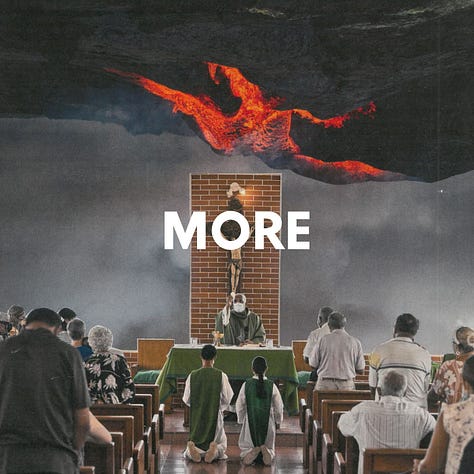
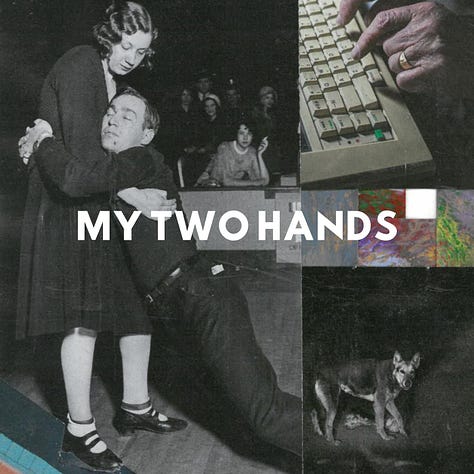
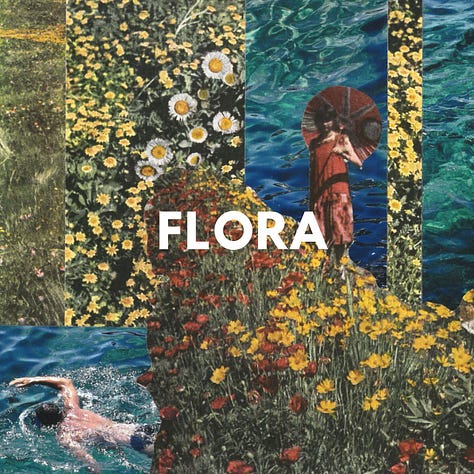
It’s So Easy to Love You (2025)
This song is about my son Robert, and it came out on Father’s Day weekend. It’s the very first professional recording I’ve ever released. It’s one of my proudest achievements as a song writer. I wrote it with the wonderful and talented Joanna Butler who I met at a songwriting workshop in the fall of 2024. This song also has a companion called “Where Love Goes” which will be coming out in the fall.
Water in My Mind / The Grey Line (2024)
These two folk songs have the special privilege of being the first music I wrote, recorded, and officially released in over a decade. I’m really proud of these songs and it’s been wonderful sharing them with people for almost a year now.
Bound (2024)
Last fall, some friends and I did a live book-making performance as part of a Halifax art festival. For six hours we bound books, inscribed poems, and illustrated them live. This is the instrumental sound track I made for that exhibit. For now, it’s still a collection of demos, and you can listen to it on Soundcloud.




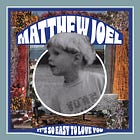

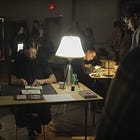
Man I feel yah, Ive quit music so many times but this time I finally gave up in a good way. Im not trying to make it anymore, Im just making all the music I can before I die, thats all. Its been liberating! Great article brother! Much Love!
“This is the pinnacle of my entire life” ahahaha this is me with every release i make.
i had to quit music in 2017 because i literally couldn't write. it was a few diff factors which played into it, but it literally felt like a breakup to me. the more i talk to other musicians the more i see that loads of us have taken time away for different reasons, which is comforting! glad you're making music again.